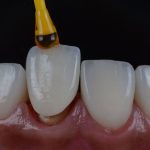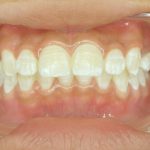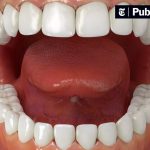Gnashing of Teeth: Exploring the Meaning and Causes of this Painful Phenomenon

The gnashing of teeth is a commonly used phrase that describes the act of grinding or clenching one’s teeth together. This phenomenon is often associated with extreme anger, frustration, or pain, and can result in significant discomfort and damage to the teeth and jaw. While gnashing of teeth is a relatively common occurrence, few people understand the underlying causes or implications of this behavior. In this article, we will explore the meaning and causes of gnashing of teeth, and discuss the various ways in which this painful phenomenon can be addressed. Gnashing of teeth has been observed in a wide range of contexts and circumstances. For some individuals, it may be a sign of physical pain or discomfort, such as a toothache or jaw injury. For others, it may be a symptom of emotional distress, such as anxiety, anger, or frustration. In some cases, gnashing of teeth may even be a sign of a more serious underlying condition, such as bruxism or temporomandibular joint disorder (TMJ). By understanding the various causes and implications of gnashing of teeth, we can take steps to address this painful phenomenon and improve our overall well-being.
Gnashing of teeth is a painful phenomenon that occurs when an individual grinds their teeth in a forceful and repetitive manner. This condition is often associated with anxiety, stress, and frustration, as well as various dental and medical conditions such as bruxism, temporomandibular joint disorder, and Parkinson’s disease. The sound of gnashing teeth is often described as a harsh, grinding noise, and the physical effects can include jaw pain, headaches, and tooth wear. It is important to seek medical attention if you are experiencing gnashing of teeth, as it can lead to serious dental and health problems if left untreated.
The gnashing of teeth is a painful phenomenon that has been observed in various cultures and contexts, often associated with feelings of frustration, anger, or despair. It is crucial to explore the meaning and causes of this behavior because it can provide insight into individuals’ emotional states and help identify potential mental health issues. Understanding the psychological and social factors that contribute to the gnashing of teeth can also inform interventions and treatments that address the underlying causes of this behavior. Moreover, exploring this phenomenon can shed light on the cultural and historical contexts in which it occurs, highlighting the ways in which human emotions and expressions are shaped by social norms and values. As such, investigating the gnashing of teeth can deepen our understanding of human behavior and contribute to broader conversations about mental health, culture, and society.
Biblical and Cultural Origins

The gnashing of teeth is a phrase that has its origins in both biblical and cultural contexts. In the Bible, the phrase is often used to describe the torment of those who are cast out of the Kingdom of Heaven. The gnashing of teeth is considered a symbol of the pain and suffering that these individuals will experience in the afterlife. This phrase is often used in the New Testament, particularly in the Gospels of Matthew and Luke. The gnashing of teeth is also mentioned in the Book of Acts, where it is used to describe the anger and frustration of those who opposed the message of the apostles. In cultural contexts, the gnashing of teeth is often used to describe the act of grinding one’s teeth due to anger or frustration. This can occur in a variety of situations, such as during an argument or when someone is faced with a difficult challenge. The gnashing of teeth is often seen as a sign of intense emotion, and it is associated with feelings of anger, frustration, and even rage. In some cultures, the gnashing of teeth is also used as a form of expression during mourning or grief, as it is seen as a way to express one’s pain and sorrow. Overall, the gnashing of teeth is a powerful symbol that has its roots in both biblical and cultural contexts, and it continues to be relevant today as a way to express intense emotion and pain.
Throughout the Bible, there are multiple references to the gnashing of teeth, often associated with intense pain and anguish. In the New Testament, Jesus uses the phrase to describe the fate of those who do not follow God’s commandments and are cast into outer darkness. This phrase appears frequently in the Book of Revelation, where it is used to describe the torment of sinners in Hell. In the Old Testament, the gnashing of teeth is often used to describe the suffering of the righteous in the face of persecution or oppression. Overall, the phrase conveys a sense of intense emotional and physical distress, often associated with the consequences of sin and disobedience.
The gnashing of teeth has been a cultural phenomenon across various societies throughout history. In some cultures, it is seen as a sign of anger and frustration, while in others, it is associated with pain and suffering. In Christianity, gnashing of teeth is mentioned in the Bible as a symbol of punishment and torment in hell. It is also believed to be a sign of regret and remorse for one’s sins. In Hinduism, it is believed that gnashing of teeth is a result of negative karma and is associated with the god of death, Yama. In some African societies, it is believed that the gnashing of teeth is a way to ward off evil spirits. Overall, the gnashing of teeth holds a significant cultural significance in different societies and is interpreted differently depending on the context and beliefs of the people.
Medical Causes

Gnashing of Teeth is a phenomenon that can have several underlying medical causes. One of the most common medical reasons for teeth grinding is sleep apnea, a condition where a person’s breathing is repeatedly interrupted during sleep. This can cause the body to react by clenching and grinding the teeth, resulting in the gnashing sound that is often heard. Another medical cause of teeth grinding is temporomandibular joint disorder (TMD), a condition that affects the jaw joint and can cause pain and discomfort in the jaw, face, and neck. People with TMD may grind their teeth as a way to alleviate the pain and tension in their jaw muscles. Other medical conditions that can cause teeth grinding include gastroesophageal reflux disease (GERD), epilepsy, Parkinson’s disease, and Huntington’s disease. These conditions can all affect the brain’s ability to control muscle movements, including the muscles used for chewing and grinding. In some cases, teeth grinding may also be a side effect of certain medications, such as antidepressants or antipsychotics. It is important to address the underlying medical condition that is causing the teeth grinding to prevent further damage to the teeth and alleviate any pain or discomfort associated with the condition.
Gnashing of teeth, also known as bruxism, can be caused by both physical and medical reasons. Physical reasons include misaligned teeth or jaws, which can cause the teeth to grind against each other in an abnormal way. Medical reasons include anxiety, stress, sleep disorders, and medication side effects. Anxiety and stress can cause a person to clench their jaw and grind their teeth, especially during sleep. Sleep disorders such as sleep apnea can also lead to bruxism as the body tries to compensate for a lack of oxygen during sleep. Certain medications such as antidepressants and antipsychotics can also lead to bruxism as a side effect. It is important to seek medical attention if bruxism is affecting one’s quality of life, as it can cause dental problems, headaches, and jaw pain.
Gnashing of teeth, or bruxism, can be caused by various underlying conditions. TMJ disorder, for instance, can trigger involuntary grinding or clenching of teeth due to the misalignment of the temporomandibular joint. Parkinson’s disease, on the other hand, can cause bruxism due to the tremors and muscle rigidity that affect the facial muscles. Moreover, bruxism can also be a side effect of certain medications or substances, such as antidepressants and caffeine. Regardless of the cause, bruxism can lead to significant damage to the teeth, jaw, and surrounding tissues, as well as chronic pain and discomfort.
Psychological Causes
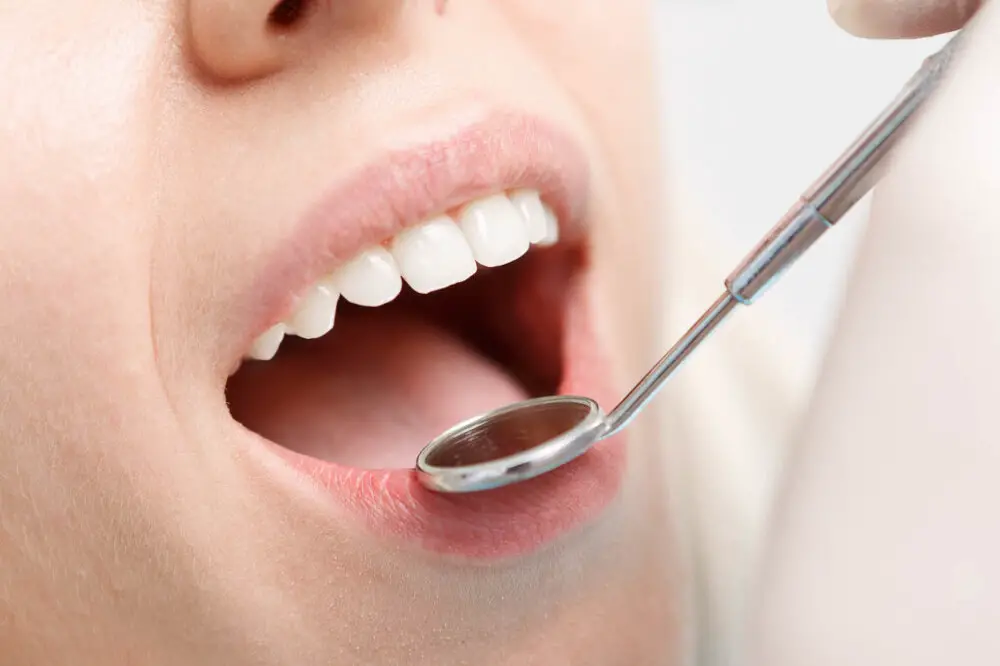
Psychological causes of gnashing of teeth refer to the emotional and mental factors that trigger this painful phenomenon. Stress and anxiety are the most common psychological causes of teeth grinding. Many people experience stress and anxiety due to their personal or professional life, which leads to clenching and grinding their teeth unconsciously. The frustration and tension build up in the body, which results in the gnashing of teeth, particularly during sleep. Depression and anger are also linked to teeth grinding, as they trigger the body’s natural response to release the pent-up emotions. Moreover, some psychological disorders, such as obsessive-compulsive disorder (OCD) and post-traumatic stress disorder (PTSD), are also associated with teeth grinding. OCD patients experience repetitive and unwanted thoughts that lead to compulsive behavior, including grinding their teeth. Similarly, PTSD patients undergo severe emotional and mental distress, which results in teeth clenching and grinding. Therefore, it is essential to manage emotional and mental health to prevent the damaging effects of teeth grinding on oral health. Psychotherapy, stress management techniques, and relaxation exercises are some effective ways to cope with psychological causes of gnashing of teeth.
Psychological factors such as stress, anxiety, and depression can lead to gnashing of teeth, a painful and often unconscious habit of grinding or clenching the teeth. When individuals are experiencing high levels of stress, anxiety, or depression, they may unconsciously clench their jaw or grind their teeth as a way to cope with their emotions. This habit can become chronic over time and lead to damage to the teeth, jaw, and surrounding muscles. In addition, individuals who suffer from sleep disorders or who consume excessive amounts of caffeine or alcohol may also be prone to gnashing of teeth. It is important for individuals who experience this phenomenon to seek professional help to address the underlying psychological factors and prevent further damage to their oral health.
Gnashing of teeth, also known as bruxism, is a common sleep disorder that involves clenching and grinding of teeth during sleep. This condition can lead to severe dental problems and jaw pain, but it can also cause various sleep disturbances. Studies have shown that people who suffer from bruxism are more likely to experience disrupted sleep patterns, including frequent awakenings and decreased overall sleep quality. The gnashing of teeth may be a result of underlying stress or anxiety, and these same factors can also contribute to sleep problems. Therefore, it is important for people with bruxism to seek treatment not only to address dental issues but also to improve their sleep and overall well-being.
Treatment and Prevention
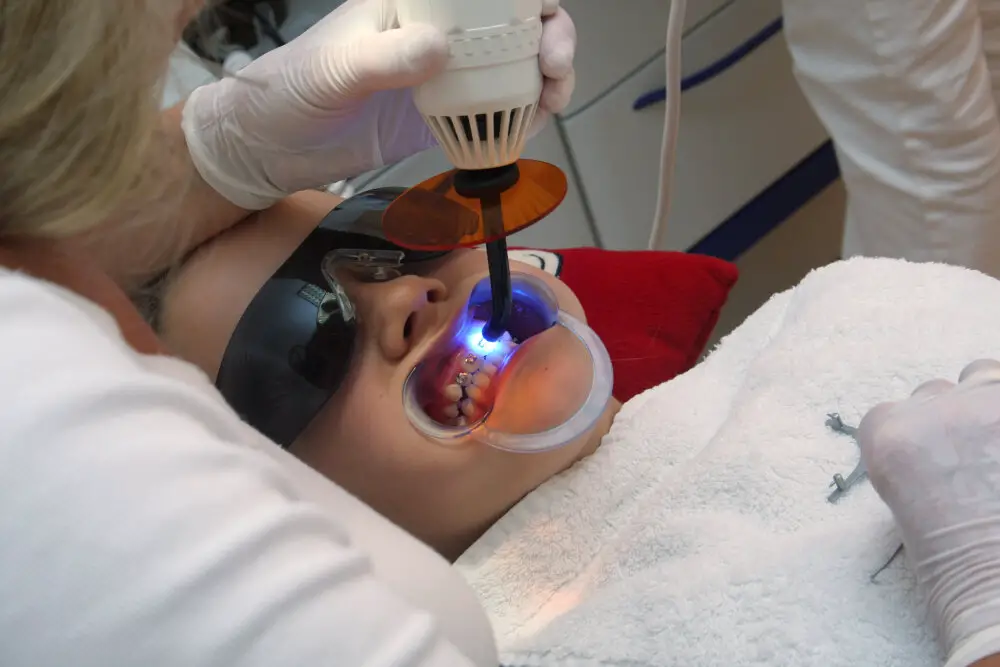
When it comes to the treatment of gnashing of teeth or bruxism, there are several approaches that can be taken. The most common solution is the use of a mouth guard or splint, which is worn while sleeping to prevent the teeth from grinding against each other. This can help to protect the teeth from damage and reduce the severity of any associated pain or discomfort. In more severe cases, medication or even surgery may be necessary to address the underlying issues that are causing the bruxism. For example, if the problem is related to a misaligned bite or a problem with the temporomandibular joint (TMJ), surgery may be needed to correct the issue and alleviate the symptoms of bruxism. Prevention is also an important consideration when it comes to bruxism. In many cases, the problem can be caused or exacerbated by stress or anxiety, so finding ways to manage these underlying factors can be helpful. This might include relaxation techniques such as deep breathing, meditation, or yoga, as well as lifestyle changes like getting regular exercise, eating a healthy diet, and getting enough sleep. It can also be helpful to avoid caffeine, alcohol, and tobacco, as these substances can exacerbate the symptoms of bruxism. By taking a proactive approach to prevention and seeking treatment as needed, individuals can manage the symptoms of bruxism and protect their teeth and overall oral health.
Gnashing of teeth, also known as bruxism, can cause significant discomfort and damage to the teeth and jaw. Treatment options for this condition include a combination of medication and therapy. Medications such as muscle relaxants or antidepressants can help reduce the frequency and intensity of teeth grinding. Therapy options such as cognitive behavioral therapy or biofeedback can help identify and address underlying psychological or emotional factors that may be contributing to bruxism. Additionally, wearing a dental guard or splint at night can protect the teeth from further damage. A comprehensive approach that addresses both physical and psychological factors is typically the most effective in treating gnashing of teeth.
Gnashing of teeth, also known as bruxism, can be a painful and detrimental condition that affects many people. Fortunately, there are preventative measures that can be taken to reduce the effects of this condition. Stress reduction techniques, such as meditation and deep breathing exercises, can help alleviate the anxiety and tension that often leads to bruxism. Additionally, dental appliances such as mouthguards and splints can be worn at night to prevent the grinding and clenching of teeth. Lifestyle changes, such as reducing caffeine and alcohol intake and avoiding chewing gum, can also be effective in reducing bruxism symptoms. By taking these preventative measures, individuals can find relief from the discomfort and long-term damage caused by gnashing of teeth.
The gnashing of teeth is a painful phenomenon that has perplexed people for centuries. This article explores the meaning and causes of this condition. One of the main reasons for this phenomenon is stress, anxiety, and frustration, which lead to teeth grinding. Other causes include sleep disorders, crooked teeth, and side effects of medication. Furthermore, the gnashing of teeth can lead to serious dental problems such as tooth fractures, headaches, and jaw pain. Therefore, it is crucial to address this problem early on to prevent further damage. Treatments include stress management techniques, dental appliances, and medication. Overall, the gnashing of teeth is a complex issue that requires early identification and treatment.
Experiencing gnashing of teeth, also known as bruxism, can be a painful and uncomfortable phenomenon that can lead to dental problems, headaches, and jaw pain. Seeking professional help from a dentist or healthcare provider is crucial in understanding the underlying causes of this condition and developing an effective treatment plan. A professional can also provide guidance on managing stress and anxiety, which are often contributing factors to bruxism. Ignoring this dental condition can result in further damage to teeth and an increase in pain and discomfort. Therefore, seeking professional help can help alleviate symptoms and improve overall oral health and well-being.
The gnashing of teeth has been a topic of interest among researchers and medical professionals for decades, yet there is still much to be learned about this painful phenomenon. Future research should focus on understanding the underlying causes of teeth grinding and clenching, as well as the psychological and emotional factors that contribute to this behavior. Additionally, advancements in technology may provide new insights into the neurobiology of gnashing of teeth, allowing for more effective treatments and preventative measures to be developed. Ultimately, a better understanding of this condition will not only improve the quality of life for those who suffer from it, but also contribute to a broader understanding of the complex relationship between physical and mental health.
Conclusion
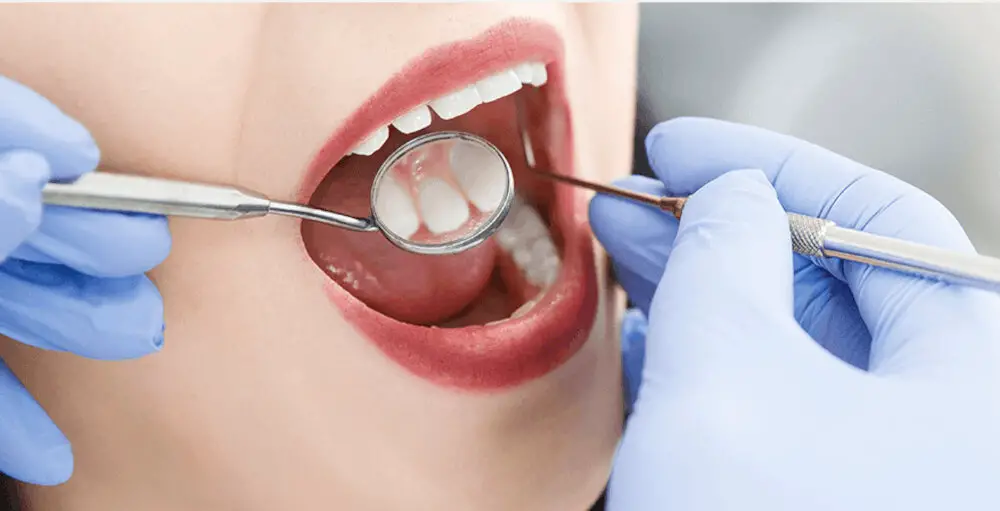
In conclusion, gnashing of teeth is a painful phenomenon that has been observed in various contexts and cultures throughout history. It is often associated with anger, frustration, and intense emotions. While there are medical conditions that can cause teeth grinding, gnashing of teeth is also closely related to psychological and emotional factors. It is important to address the root causes of this behavior in order to alleviate the physical and mental distress it can cause. Through mindfulness practices, therapy, and other forms of self-care, individuals can learn to manage their emotions and find healthier ways to cope with stress. By exploring the meaning and causes of gnashing of teeth, we can gain a deeper understanding of ourselves and others, and work towards a more peaceful and fulfilling existence.

